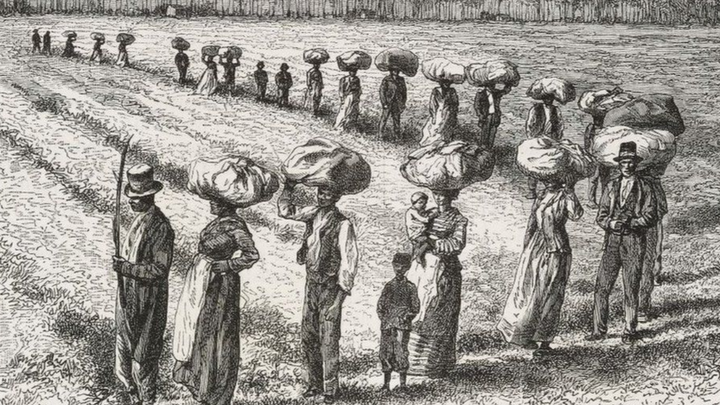
'King Cotton, the Munificent'
I'm writing a book called King Cotton, the Munificent: Slavery and the (Under)development of the United States during the Long Nineteenth Century. Could you help me finish it?
To give you a taster, this is the book's first paragraph in the current draft:
'This book argues that slavery was crucial to the development of the United States during the long nineteenth century. It shows that slavery was a necessary condition for the great boom in cotton exports because the South’s independent yeoman farmers preferred to raise livestock. Slave-produced cotton exports then provided the foreign exchange that paid for the imports that the federal government taxed to obtain the bulk of its revenues. Moreover, that foreign exchange also allowed specie to accumulate in the country, which then formed the monetary base required for the expansion of financial markets. It was, however, the North that benefitted from this financial revolution, since it had more to gain from commercialisation and required greater investments in transportation infrastructure. As yeoman farmers prospered thanks to the expanding frontier, their demand for manufactured goods formed the basis for the North’s industrialisation. Compared to the South, Northern industry had three main advantages. Firstly, its ‘fall line’ – where the upcountry met the coastal plain – was closer to the cities, making water power cheaper. Secondly, productivity levels in Northern agriculture were higher, so there was more surplus labour to be employed in industry, beginning with women. Thirdly, demand was depressed in the South due to the limited consumption of the enslaved. Slavery thus promoted Northern development, even as it reinforced Southern backwardness, with significant political consequences. Immigrants preferred to settle in the North, so its population grew faster, tipping the balance of power in its favour in Congress. Fearing for the future of their precious institution and resentful over the role of cotton in funding the North's development, Southern slaveholders chose to secede. The North, however, would not let them go because it feared the financial impact of losing the South's export sector. After the Civil War, the North contributed to the South’s underdevelopment by excluding both Confederate veterans and freedmen from the Homestead Act, which led to a divergence in wages between the two sections. Northern elites abandoned Reconstruction in part because they wanted to ensure a labour supply for cotton, which continued to play an important role in public finances. They therefore sided with the descendants of the slaveholding class who were building a new authoritarian order that would use state-sponsored terrorism to repress the South’s black population. In this way, the failure of Reconstruction foreshadowed much of the United States’ relations with the underdeveloped world in the twentieth century.'
I need your help to write it because I am an independent scholar, having left academia after completing my PhD in Economic History at the London School of Economics in 2013. I am currently taking time out from my day jobs (farming and copyediting) to write. As such, I could really do with your help. Please consider supporting me, so that I can finish this book. I think it's going to be great!
If you would like to learn more, you can visit my website (www.joefrancis.info) and follow me on Twitter (@joefrancis505 ).


